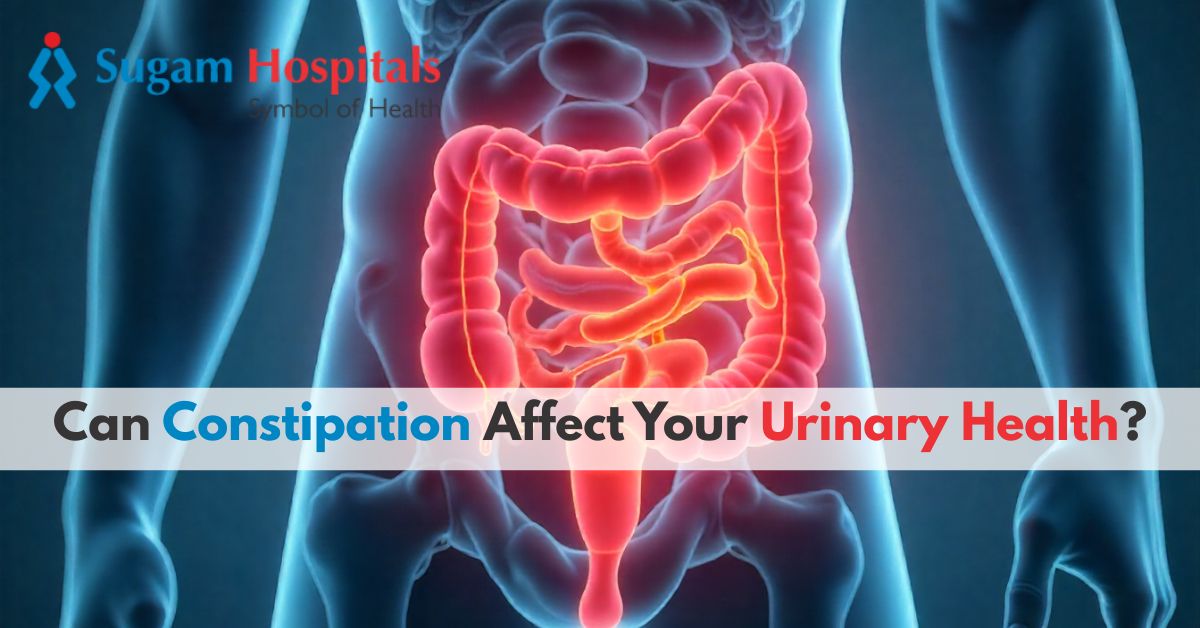Can Constipation Affect Your Urinary Health?

Can Constipation Affect Your Urinary Health?
September 2, 2025 by adminConstipation is typically considered a digestive issue but the effects of constipation can often be far-reaching beyond the gut. One connection that often goes unnoticed is how bowel health can affect the urinary system. Given how close the two organs are in the pelvis, it’s not surprising that failure of one body system can contribute to issues in another.
How Constipation Puts Pressure on the Bladder
The rectum and the bladder both occupy a small physical space in the lower abdomen. When faeces accumulate and the rectum becomes distended, it can push on the bladder and affect its ability to hold urine comfortably. This causes an individual to develop a sensation that is associated with a need to avoid more frequently, or the urge to go as the bladder is not completely full.
In some examples, the continued sensation might make it hard for a person to fully evacuate the bladder, which can lead to residual urine. Residual urine can be a good environment for bacteria to thrive and increase the risk of urinary tract infections (UTIs).
The Link Between Constipation and Urinary Tract Infections
Urinary tract infections (UTIs) are the one of the most reported urinary problems for chronic constipation. Straining during bowel movements combined with not fully emptying, can be disruptive to the bacterial composition in the area around the pelvis. Bladder pressure added to not fully emptying provides bacteria with more indication to grow and cause an infection.
Both children and adults are more at risk, especially if they both suffer from constipation and UTI at the same time. Awareness of this overlap is essential because common management of constipation treatment is likely to reduce the occurrence of urinary infections.
Urinary Symptoms That May Be Connected to Constipation
Constipation affects everyone’s bladder differently. Some people with constipation may urinate more frequently. Other people may have difficulty starting to urinate or difficulty getting a steady stream of urine to keep going. Constipation may also worsen urinary leakage in women due to the close anatomical relationship of the bowel and urinary tract. Men with enlarged prostates may also notice a greater urinary symptom severity with constipation due to the rectal pressure in addition to obstruction from the prostate causing problems with urine flow.
When to Seek Medical Advice
Constipation that only happens occasionally will typically improve with an increase in liquid intake, fiber in the diet, and/or activity. But if there is ongoing constipation with urinary problems, you shouldn’t ignore it.
If you find that you are going to the bathroom more often or have further signs of a urinary tract infection, or discomfort once urine is flowing, it may be a sign of your bowel habits impacting your urinary function. If you tell your primary care doctor early enough, the symptoms may be resolved without poor bowel habits negatively impacting your urinary symptoms all together.
Although constipation is primarily an unpleasant dietary issue, it may have detrimental effects on urinary health through bladder pressure, incomplete bladder emptying and risk of infection. Treating constipation may change dietary habits to relieve not only bowel discomfort, but also improve bladder health. If investigatory constipation with urinary symptoms is affecting your life today, it may be prudent to seek advice from a Urology Specialist in Chennai to help restore balance and prevent longer term problems.

